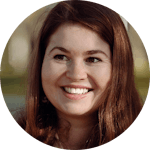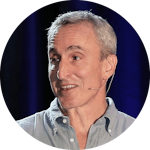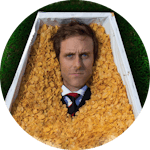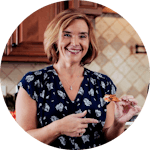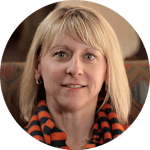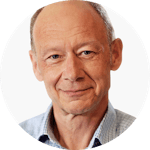Diet Doctor podcast #38 — dr Hassina Kajee
Hon gick med i Nutrition Network. Många tusen sydafrikaner har fått kunskap genom kampanjen Eat Better South Africa. Hennes budskap om medkänsla och förståelse är en läxa för oss alla!
Lyssna här
Du kan lyssna på avsnittet via YouTube ovan. Vår podcast är också tillgänglig via Apple Podcasts och andra podcasttjänster. Prenumerera gärna och lämna ett omdöme, det hjälper verkligen till att sprida budskapet och fler personer hittar till podcasten.
Tidigare avsnitt hittar du här.
Innehåll
1:56 Välkommen, dr Hassina Kajee
2:09 Så fick Hassina sitt drömjobb
6:00 Vikten av utbildning om hälsosam kost
8:38 Utmaningarna i att starta en LCHF-mottagning
11:38 Att uppnå målen tillsammans
13:31 Läkares intressen av högfettkost
19:51 Hassinas engagemang i kampanjen Eat Better South Africa
28:16 Hur man uppfattar Eat Better South Africa
30:37 Andra viktiga faktorer när det handlar om hälsosam livsstil
37:57 Råd för patienter som äter LCHF
39:46 Kraften i själviakttagelse
42:56 Mer om dr Kajee
Transkription (på engelska)
Dr. Bret Scher: Welcome back to the Diet Doctor podcast with Dr. Bret Scher. Today I’m joined by Dr. Hassina Kajee. Now Dr. Kajee started as a physician in South Africa, running an acute care ward in a tertiary hospital and you’ll hear her say it seemed like her dream job which he always aspired to be as a doctor. But it didn’t take long for her to realize she was kind of missing the mark on where she could have the biggest impact.
And through a number of different experiences which you will hear she realized that she could impact people much better with a low-carb lifestyle to help them to prevent even showing up in the acute care ward. So she transitioned her practice and also she got involved with social action with public health especially in the poor communities of South Africa, working with the Eat Better South Africa campaign with the Nutrition Network and she is currently the medical director of the Nutrition Network.
And through her outreach she has helped thousands of people understand the importance of nutrition, the importance of health and has helped people adopt a low-carb lifestyle in a culturally sensitive way and in an economic sensitive way. And those lessons I think we all need to take away that there’s not just one way to eat, there’s not just one way to eat even low-carb and we have to be sensitive about the individuality of people, about their cultural norms, about their ethnicity and their history and kind of help devise a way for people to be healthy in ways that work for them.
She also has some strong beliefs well beyond nutrition about healthy lifestyles and the mind-body connection, all of which I think are such important lessons for us all to hear. So I hope you have some good takeaways and really enjoy this interview with Dr. Hassina Kajee.
Dr. Hassina Kajee, thank you so much for joining me on the Diet Doctor podcast.
Dr. Hassina Kajee: Thank you so much for having me. It is surreal being here, having watched other podcasts and to now be a guest it’s amazing, thank you very much.
Bret: I’m honored to hear that, that’s great. I want to hear more about your story because we spent some time talking yesterday and you have a pretty phenomenal story. So tell me if you can as far back as you want to go about how you got started in medicine and kind what your philosophy was and the experience you had in trying to help patients.
Hassina: Right, I think I started like most doctors, wanting from the deepest part of my heart to help people. And the thing that bothered me along the way was the way medicine became broken up into fractions and so the surgeons… there is a hierarchy within the medical world that I noticed very early on. And I actually started out wanting to become a surgeon, that was the route I was going and I did surgery and there was a relationship that was lacking between the colleagues.
And I became more intrigued with the human body and the functions of the body in the pathophysiology and so eventually I actually did almost two years of emergency medicine and then I became tired of the trauma, a lot of trauma in South Africa. And I was more interested in the ’why’ behind chronic disease.
Bret: And where in South Africa were you training?
Hassina: I trained in the University of Cape Town which means we go through the various hospitals in the Metropole and I became fascinated with even during my training with obesity and to me it seemed… it was quite stupid that something that was so widespread had a very seemingly easy answer. And the more I read and the more I learned, I obviously realized it wasn’t as easy as it seemed.
Eventually I specialized and got my dream job at the time. I actually stopped working for a little while when my daughter was born, I was pregnant during my final exams. So the family is really important to me and my husband and I wanted the kids to have either parent home and as much as I had a career aspirations being a mom suddenly made me feel like, ”How am I supposed to work now?”
So I mean my husband and I kind of swapped roles there for a little bit when I was off at this dream job, once I had specialized as a specialist physician and he stayed at home; he’s also an emergency physician. He stayed at home for a little while, he worked after hours.
But in climbing the ladder and eventually reaching this goal dream job, my heart broke wide-open because all around me in my 10 bed high care unit I was meeting patient after patient a lot of them under the age of 30 coming in with cardiovascular disease, coming in with a first heart attack and not only was that the problem; their wives were overweight, their children were walking into the unit carrying crisps and cool drinks.
And there was so much work to do, my nursing stuff were overweight and I would talk to patient after patient in the ward. Sometimes I would have the entire unit paying attention to the lecture I was giving to one patient.
And it was desperate… it still is. And eventually I had the nurses on the program just having listened in and making tiny changes that started a low-carb clinic for the patients I was seeing in the high care unit, but it became too much to sustain and I felt like I was standing at the edge of the cliff catching one or two patients, and I didn’t want to do that. I wanted to get them way before– I’d never wanted to meet them in the emergency unit.
Bret: It’s amazing that this was your dream job. This is what you were sort of trained and bread for to do that you’re going to impact people this way and when you got there, you realize the impact that you need to have is 10 years earlier, 15 years earlier.
Hassina: Much, much earlier. You know, in the prenatal level even, my belief is that the people to change this are the mothers, because let’s face it, as much as we are growing worldwide and we have equal rights, the mothers are still mostly involved in diet and what the children eat and what the mothers eat when they’re pregnant.
And, you know, it’s about educating people firstly about what can go wrong and it’s not too difficult because most of them are terrified that they’re going to develop diabetes because they’ve cared for a family member who’s been diabetic and only lived there for a few years after their amputation or a few months.
So that’s my passion. Is educating people in a simple way that speaks to them from the heart to the heart and as much as I had success I would say in terms of people taking the message, understanding the message, and trying to translate that into a practical way of life, it was just too few people. It was thus far specialized I felt to be reaching enough people.
Bret: It’s interesting that you’re also reaching the nurses at the same time. I think that shows sort of the prevalence of whether it’s obesity and metabolic disease and the lack of knowledge about it; it sort of has become the new norm. At least in the United States it certainly has, the same as South Africa. It’s like people didn’t even sort of bat an eye at it.
Hassina: Absolutely, you know, it’s the norm and then we have the culture issue in South Africa, especially the African communities. The bigger you are, the richer you are. And when people start to lose weight, there’s the stigma associated with HIV.
So, you know, we have many different hurdles, yes, but it was shocking to me that it was the norm that cool drinks– and even the porters in the hospital earning a much lower salary would use that little income to go to the shop and to buy a cool drink. And would say, ”I drink water from the tap”, because we’ve got actually great water coming out of the tap, so, you know–
Bret: So a cool drink is like a soda.
Hassina: Oh, soda, yes.
Bret: That’s okay, we’ll learn the South African lingo. So then you had this transformation, you realized you’re not having the impact you want to have on people and you started a low-carb clinic you said for the people in the acute care. And what was the reaction of your colleagues of the hospital, of the medical societies… what kind of reaction did you get?
Hassina: So, you know, it was– I was very lucky to be in a department that was very supportive, meaning the emergency department and as long as it was science-based they were very happy about that. But unfortunately I worked very closely with other specialists in other departments and that wasn’t taken they very well. So I think most hospitals around the world nutrition is not a doctor’s department.
You should be dealing with nutrition. It’s the dietetics department. And the dietetics department refused to get involved. So I approached the chief dietitian and said, ”I’d like to talk to about this.” And she didn’t return my emails and I found out through the grapevine that she felt that she was not educated enough in low-carb treatments to have a conversation with me. So I tried even higher and, you know, we faced a lot of issue, a lot of hostility within the department. Colleagues coming into the department and tearing up diet sheets or food lists that we’d given to patients.
Bret: Physically tearing them up?
Hassina: Physically… opening up the folder, going, ”Mm, what’s this?” Squash it or tear it out.
Bret: Oh, my goodness.
Hassina: Thankfully, you know, South Africa is– patients are still very old-fashioned in terms of ’do what the doctor says’ and don’t question the doctor and I was on a mission to empower my patients to ask questions. In fact when the patients asked a question, they would say, ”Sorry doctor, to ask–”. And I’d say, ”But it’s your body. Please do ask.” There isn’t tolerance or the time to answer those questions, because of how busy it is and, you know, all the hurdles around the world I think are the same or similar.
And we had patients coming in actually having been on a low carbohydrate diet for a couple of years speaking to a cardiologist and the cardiologist was saying, ”This is terrible. You’re going to die.” And they would say, ”Thank you very much doctor, ”but I know that this diet has helped me get off my blood pressure pills, I’ve lost weight… I respect your opinion, but I’m not getting off the diet.” So we still have patients who are– I think it’s a revolution in the patient world as well.
Bret: That’s so impressive to hear when you started that statement by saying they very much just listen to their doctor and feel like they’re inconveniencing their doctor to ask questions. I mean to go from that to being empowered enough to say, ”No I know what I’m doing is benefiting me… I’ll stay the course.”
That’s an amazing transition and I’m sure it was very difficult. But you can’t talk about low-carb in South Africa without bringing up a professor. I mean, I am sure his presence is everywhere. So how much do the other doctors know about him or his message or his challenges and how pervasive is that and does that make your job any easier or harder having him kind of led the way?
Hassina: So it’s such a difficult question to answer. A lot of people– all the South Africa respects the professor for his sport science career. And my personal feeling is that when he started to talk about nutrition that there was a lot of egos that got into the ring there and people felt that he wasn’t qualified– he was qualified to speak about sports nutrition, but he wasn’t qualified to speak about diet and certainly not diet that went against, you know, the current medical dogma.
And having that association with him in tertiary level hospital for me was actually more difficult to practice medicine because a lot of people were against what he was saying and what he was teaching. But on the other hand it’s quite divided because people who– So this is my view that if you’re doctor and you’ve never had a weight issue, it’s very easy to say, ”This is rubbish. Just eat less and move more.”
When you are a doctor and you gain weight and you know the physical aspects and the physiological aspects and the clinical association of that weight gain, then you have a personal responsibility to– if you have a personal responsibility to improve your health or, you know, you want to improve your health, then you start looking at different options. And it’s only then that people will realize exactly how difficult it is to eat less and move more.
Bret: Yeah, I think it’s sad that we sort of rely upon doctors to have their own personal experience before they can learn about it. And that’s sort of what I see is our job here. Not just educating the individual person, but educating the doctors, or allowing the individual patient to educate their doctor. Because we have to speed up the process somehow.
Hassina: There’s no individuality in medicine. Everyone is supposed to eat exactly the same thing.
Bret: Right, I mean how can we think with our diverse backgrounds and ethnicities and cultures and our genetics that there’s one diet for everybody? It just doesn’t make sense, does it.
Hassina: I think the thing that bothered me the most was that everybody knows in tertiary level medicine or even in the regional hospitals, any doctor in South Africa knows how prevalent obesity is. And to have somebody as esteemed as Prof. coming to the forefront and saying, ”Look–” so firstly you have to be blind to see– to not be able to see his physical transformation.
And then for somebody of that caliber to say, ”I felt sick, I got better, I’ve done the research, this is what works”, if you really care about obesity and if you really want to make a difference and you can see that somebody has a solution– And he’s not some Tom, Dick or Harry; he is an esteemed A-1 rated scientist.
Why is it not possible for you to be able to sit at the table with him and discuss, ”Well, I’d like to hear your thoughts on this”? In fact when Eric Westman came to South Africa I arranged a meeting at the University of Cape Town for the clinicians to attend. While it was reasonably well attended, it was not at all well received. There was much hostility in the room from various departments and it was so clear that no matter how much science is out there some people will refuse to listen.
Bret: Why is that? Because, you know, we want to give people the benefit of the doubt that physicians are here to help their patients. So why do they get so dug in sometimes that they can’t be open-minded enough to look for other opportunities to help their patients? What do you think that is?
Hassina: I have no idea. I think ego has a huge role to play. I think that people are treading on other people’s territories. Perhaps that’s the issue. To me, you know, obviously when it came up and people were saying, ”Prof. was saying eat high-fat”, I was like, personally I thought, ”This is nonsense. They’re going to die.” And then I thought, ”No, this is Prof so I need to do a little bit more research.”
And then I was like… I mean the way I practice is I never– I always practice what I preach so I have to do– whatever it is I’ll take it up personally, whether it would be fasting or extended fasting or budget eating. And how can I prescribe to my patients when I don’t know what it feels like?
And I felt that my husband was a couple of– maybe 20… 15 to 20 kg overweight, no matter how much we ran and no matter how well we ate and I noticed an immediate transformation. We used to call him Hoover because he would just finish everybody’s meals.
Bret: You use that term even in South Africa, huh?
Hassina: We do. And all of a sudden he was satiated. And I kept making him low-carb desserts and after the third day he said, ”What are you doing?” And I said, ”I just want to spoil you.” He said, ”Please don’t, because for the first time in my life I feel like I have control over what I’m eating.”
So when you experience that, I’ll tell you stories from working in emergency department, there is no time to go to the loo, there’s no time to have lunch and when I started eating low-carb but I had been for a while before I started that job, and I would keep going without eating and I would never had breakfast and my interns would look hungry, they would be hungry. I remember an intern coming up to me and saying, ”You need to tell me what you’re doing ”because I’m going to kill someone, I need to eat now.
And you just look so serene.” You know, it’s like that across the board and I used to have this issue with the body, this fascination with the body that the body is remarkable. But how can we have to stop so many times a day to eat and if we don’t eat, we feel crazy?
It was a personal transformative journey for myself and that is the thing I think that’s lacking, that people have no– in my experience… the professionals that I had these discussions with and debates with, it felt that they just read an abstract and they quoted the abstract and that was– you know, they don’t have time to read the low-carb literature because they are too busy reading their own departments literature.
So whether it’s a hepatologist or cardiologist or an immunologist or whatever it is, they just don’t have the time to read, but, you know, why not talk through the information? Or be guided or be willing to be guided?
Bret: It’s the danger of our sort of over specialized medical society that everybody… you know, the ’stay in your lane’ or ’the super narrow focus lane’ that you take care of your one body part, but kind of forget that that’s connected to the rest of the body. And overall health is what we all need to be taking care of at the base and then focusing on the one body part.
Hassina: I think that’s a huge flow in medicine, if you look at either speaking about how– speaking about engineers… there is an engineer to look after all engineers. And you might have a super specialization but there’s still somebody looking at the whole picture and we don’t have that in medicine.
Bret: It’s a great point. So you went on from helping one person at a time to having more of a role in public outreach and helping entire populations with the Eat Better South Africa campaign where you’re dealing with a lot of poor communities without a lot of resources and that must have been challenging to really get the message across and whether it was to convince people it was the right thing to do and logistically help them; tell us about your involvement there and what you saw.
Hassina: So when I realized there is a huge issue and Prof has the solution, I contacted him to say there is this problem because this is being viewed as the rich man’s diet and the people who need it are the poor. So he put me in contact with Jayne Bullen, the CEO at the time, and we met at a little coffee shop with a local celebrity and actress, somebody who is very passionate about improving life, Euodia Samson in South Africa, and she had been in touch with fitness groups in the poor communities where they would meet in community centers and exercise to be healthy and they were just not getting results.
And that was how Eat Better South Africa was founded. It was a particular community in Oceanview, in the southernmost tip of Africa and these people were just so passionate about improving their health. And so behind Eat Better South Africa is a huge team of people including many volunteers.
And so we had a game plan. What we needed was we needed somebody in the community who people would trust, who would also had some experience with a low carbohydrate diet and Euodia Samson ticked that box. And then we formalized a program of education, so we met the community – it was about 14 people at the first time, did blood pressures and had bloods done, checked sugars and took readings – abdominal circumference and those kinds of things and then they would be in the community center.
We would either give an educational talk about what insulin resistance is, just explaining how insulin resistance is the root cause of disease in a very simple format.
Bret: I’m sure it was the first time any of these people ever even heard of the topic, the concept.
Hassina: And we came up with a budget meal plan that looked at that particular cultural group and what they would eat on a regular basis. So in South Africa we’ve got different cultural groups and it’s very important to come up with meal plan according to that particular person’s culture.
Bret: Yeah, it’s so important, so important, something that we in the United States just completely seem to ignore, that different cultures are going to eat different ways. And if you tried to get that cultural group to eat in a completely different standard or cultural standards, it just would fail from the beginning regardless of how beneficial it was. So I think it that was a very good insight for you to approach it that way.
Hassina: And so we did demos, food demos, we then also had partnered with a company called Banting Boulevard, who is one of our affiliates and they created something called HEBA pap. So a lot of people in South Africa eat porridge; we call it pap, Afrikaans word, and we needed to create a low-carb porridge.
And so they came up with something as close as possible to the traditional pap and so we taught them how to turn that into porridge, how to turn that into bread, how to turn that into a stiffer form of the porridge and then how to pair whatever they were eating with that.
So for example if it was meant to be curry or spaghetti, I mean having spaghetti and mince or something like that, it would end up being the mince with cabbage that was sautéed in animal fat. I mean it’s a cheaper fat, so we encouraged them, we taught them how to render fat. You can get fat from the butcher for free and then you can cook it down and funny enough that community when that was taught to them, they went, ”Hang on, that’s what my grandmother did.”
Bret: Oh, isn’t that interesting?
Hassina: And so it was taking them back to ’this is the way you people used to eat.’ And so it was amazing. Within five weeks people had lost over 11 kilos and lowered their blood pressure, having been on for, five blood pressure medications… and, you know, the norm, what we in the low-carb world know is now the norm.
But to see this and for people– so normally when you have high blood pressure as you know, when you are on four or five different pills and you go to the clinic and the doctor says, ”You’re obviously not taking the tablets.” And one of the ladies actually said, ”I’d go to the clinic and the doctor would say… ’you naughty patient, you’re not taking the tablets. Okay now let me come see you first.”
And within three or four weeks her blood pressure was completely normal obviously on those five agents and she would have to be reduced– the meds would have to be reduced. But it was all these wonderful stories and seeing how practically we could do it on a low budget diet.
Bret: That’s a great lesson, I mean, that people are budget conscious and culturally conscious and you found a way to fit that. So were you able to then take that model and expand it to other societies, other cultures, other groups of people?
Hassina: Yes, so what we do is we customize every plan based on the cultural group we’re busy with. So each intervention has obviously taught us more and more. The issue for me personally is that we are bombarded by food industry.
So you cannot expect real change if you do a six week intervention and you don’t follow up. And obviously with Eat Better South Africa being a nonprofit organization we rely heavily on funding. So without funding there’s only so much we can do, because people need to pay bills and we need to pay people to do the interventions.
Bret: And you’re not getting the funding from the food companies, that’s for sure.
Hassina: So we struggled or should I say, we are still searching for funding and we created the Nutrition Network; it was like an ”aha” moment. Because we have all the science. we have access to all the great minds in the world including yourself. And so why not create a network of doctors firstly, or healthcare providers so as a first timer learning about the science of LCHF you don’t feel so alone, you have a community, you have a new tribe, because I know how isolating it can be to start off and to learn by yourself.
And which articles do you read? Which books do you read? Who would you follow? Sometime there’s some conflicting advice. And so to create a network and a community of professionals who would support each other– and there’s no right or wrong answer and even if you have something that’s going lopsided, share it with the community and it probably is a point that we need to learn or we haven’t heard about before either.
But the great thing was to use this as an opportunity for funding. So the majority of the profits of the Nutrition Network goes into funding and we’re so excited because, I think is now the third month that we’ve actually been able to turn the Nutrition Network into actual real-life donations towards Eat Better South Africa. So I think I lost track of your question there, sorry.
Bret: It’s okay, that was great information. It was sort of about talking about how you can have this impact and how you can make it work, so I think that’s wonderful.
Now how has it been received though because if the doctors in the hospital think it’s rubbish and are tearing up the papers, if they see the impact you’re having on these communities, I mean it has to open their eyes some way to see these populations of predominantly poor people who probably don’t have a high level of healthcare, who probably are ravaged with chronic disease, to see that slowly starting to change?
Are people starting to wake up to this a little bit?
Hassina: I think it’s still a bit of a drop in the ocean, the work that we have done. I feel like there’s still so many lives that need to be changed that it’s almost like we’ve gone through a phase and now we need to sort of adapt to the game plan a little bit. We recently met with the chief director of health in the Western Cape in order to– because that was the issue, that seeing the patients in the community is one thing and then when the patient needs to follow up with a community doctor, we need a doctor who is equipped with low-carb knowledge.
So in some communities we’ve been able to partner with GPs and to get them to our course and to pay them to see our patients, but we haven’t been able to do that in all the communities and this community is strained to public health.
And so we have something budding at the moment with the local regional Hospital that have been sold. We’ve met them and presented the Virta Health data and from the super all the way down to the head of the medical unit have said, ”Actually we’re not in a position to bargain anymore. We don’t have space in our wards; this is crippling us, we need to do this now.” And so we do have some hope coming up.
There are specialist physicians who have done the course in the local hospitals and are trying to make the change within their hospitals. You know, obviously the wheels turn slowly, but I have to go back to what I believe which is that it does take one person to make a difference, even if it takes forever. There’s a long-term plan, so you have to look at a 20 year plan rather than wanting to see those results right away.
Bret: Right, it would be nice if we could see them right away, but you can’t lose sight of that long-term plan. That’s a great point. Now you are obviously very busy with everything you’re doing, with the Nutrition Network, Eat Better South Africa, but in addition to that you also have your own private clinic where you see patients one-on-one and in addition to using nutrition as a powerful tool to help them you’re also a big proponent of other aspects of a healthy lifestyle.
So tell us what else you think are some of the important factors that people need to focus on to help them beyond nutrition?
Hassina: I think that even though nutrition is a big part, it’s actually a small part, because I feel that we have lost touch with the human intelligence, our own inner intelligence and our bodies own capacity to heal and that people very much– the successful people in the world are very much purpose driven. And when you have a patient coming through your doors who is giving all the power back to you, I don’t want to accept that power, because it’s pressure.
So my job is to help that patient facilitate– I’m just a facilitator helping that person journey back to the intelligence within. And so what I do is I have a questionnaire that I go through and I focus on and I use all the will of health… the wellness will… And I used to feel– it’s ongoing learning in life for me as it is I think for all of us, but in my practice I used to feel this pressure to get the patient on the journey and have the patient on that journey and successful.
And I realized with patients falling off the wagon and I took it personally like I put so much effort into teaching this patient… why could they–? They are so empowered, they are so intelligent… why is it that they’re not following this advice? And I realized that that was my ego speaking, because I needed the patient to succeed because I needed to feel good because I’d done something and that my ego had no place in healing.
Bret: Yeah, isn’t that interesting how the ego can just sort of creep in there?
Hassina: Absolutely, even though you think that you’re passionate and you’re living your dream and you’re doing this good work. It has nothing to do with that… you know, the ego creeps in. And so I had to have this hard conversation with myself and realize that I can just ring the bell and I am but one healer in the patient’s life, in the patient’s journey.
And it’s every interaction is important and especially that it’s not that– every patient that comes through the door is actually bringing me something and I’m learning from that patient. You know, with my medical history I’ve got so many stories, as I’m sure you do that you generally you see something like as weird and wonderful as a dislocated jaw just once in a while.
Or a cerebellar stroke, you would see, you know, every couple of weeks or Wernicke’s aphasia or those weird and wonderful things… and why is it that you see that three times in a row? Suddenly you see it and then the next day you see a patient with something; the same thing with a different clinical kind of presentation. And I only learned now that that was nature’s way of teaching me that it wasn’t that– it didn’t just happen, that it happened to teach me that different clinical syndromes can present in slightly different ways.
And I’ve had loads of these kinds of clinical experiences and so I firmly believe that the patient is there to teach as well. So I now would ”prescribe” and say that with inverted commas, because I don’t prescribe anything, I give some life sort of guidelines, but for me sleep is very important, stress management is very important, teaching the patient how to balance their parasympathetic nervous system with grounding and breathing.
Bret: Should you work a lot on stress management, sleep…
Hassina: Absolutely, managing especially your circadian rhythm, because the body is doing its very best to heal at every any given moment and we interfere with that. But if we create that optimal healing environment within and if we give the body the optimal nutrients and we give the body the optimal sleep timing and environment in which to sleep and when to eat and when not to eat and we have faith that the body will use this to heal, you know, those are the fundamentals of– like sleep is a fundamental healing tool.
So not only do I address the specific issue that they’ve come in with, because mostly people are coming in with diabetes or hypertension… the metabolic syndrome. We end up talking about trauma that the patient experienced, that they hadn’t processed, childhood trauma or other trauma, you know, that kind of thing–
Bret: Did you find it could be overwhelming? That it’s a little too much at once for some people and it overwhelms them?
Hassina: So what I do is every new patient who sees me gets an introduction to the type of work that I practice so that it’s not new to them that we are going to be talking about all this kind of stuff that’s not just medicine, so they come in prepared. I also say to the patient that this is a journey, so it’s like an à la carte menu that I’m going to be creating for you and you choose what you want to focus on. If you want to choose sleep, you choose sleep.
And then it will be beneficial for you to keep your carbs under 25 grams and maybe, you know, you have to meet the patient where the patient is at. And every single patient is individual and you know, on the contrary, people are overwhelmed that for the very first time they are able to speak about themselves. And all the stuff that they hadn’t processed or they hadn’t spoken about… I mean it doesn’t all happen at once.
My first consult can go over two hours and then after that it’s just an hour or half an hour. But just to ring the bell in certain areas, what’s your priority in life? Family, career, religion, okay, so how much of that are you actually putting effort into on a daily basis? And they go, ”My family’s really important to me but I’m giving them a 2 out of 10 in real terms.” So that’s something that bothers me. Okay, so how can we– what do you think we can do to improve that? And then so they come up with the answers, and I just guide a little bit or suggest a little bit.
Bret: Those are the things we’re not taught in medical school and residency, but it has so much to do with caring for the person in front of you.
Hassina: Absolutely.
Bret: So what kind of advice can you give people, because not everybody is going to get a doctor like you, let’s face it. So what advice can you give somebody on how they can help themselves through this journey if their doctor is maybe not on the same page?
Hassina: So for anybody listening the three books that I suggest people read are Dr. Wayne Jonas’s, How Healing Works, and then The Circadian Rhythm by Dr. Satchin Panda. And Why We Sleep, I forgot the author’s name but sleep is so topical at the moment so that’s the first thing. And if you go to Dr. Jonas’s website and I’ve got absolutely no affiliation with him, I’ve just found him as a resource and it’s amazing, the things on his website, he has some templates that I’ve started using; the kind of questions that you can ask.
What I also suggest is perhaps email this questions to your patients beforehand and give the patient time to go through that, the questionnaire, and come back to you and then you put a lot of stuff in the parking lot. There is only so much you can tackle and what we want to do is to cultivate a journey and the long-term relationship with the patient.
And my number one bit of advice would be start working on yourself, because we lose track of the fact that we are human as well, that we need that family and sleep and when to eat and relations and community and rest and we work too hard. And so what’s behind why you’re working so hard? Are you trying to run away from something? Are you? What is it? And so can you be brave enough to tackle those individual questions?
Bret: So a lot of introspection.
Hassina: Absolutely.
Bret: It can be uncomfortable for a lot of people.
Hassina: I think every single person needs to see a therapist, because it can only be helpful, it’s healthy and wonderful to talk about yourself, to figure out what makes you sick. And that to me is key, start looking after yourself holistically exercise regularly and do the things that you love and make time for family and sleep and follow your passion most importantly.
A lot of people make the mistake of studying or working hard towards a certain thing and they don’t go back and reassess and say, ”Is this still my passion?” And it can be devastating to realize that your passion has changed. I mean I had to go through that journey when I basically changed careers and it was a huge moment for me, it was a really difficult time, because I didn’t know who I was anymore. I worked so hard towards this dream job.
Bret: That became your identity.
Hassina: Absolutely. And when I had cut back and did look at who I was and why I was trying so hard, it came from the feeling of inner lack, a feeling of not feeling enough, that I had to do all of this for other people in order to feel, because that’s what I knew, I knew achievement. And when I didn’t achieve I felt like I wasn’t enough as a person.
And so I had to do a lot of introspection and a lot of brave and hard work. And work on that and feel enough and realize what all that was about, and all the wrong messaging that I picked up along the way.
Bret: So what we eat is clearly important, but it’s so much more than that. It’s about how we see ourselves as people, how we see ourselves in the world, what our place is and all that impacts your health in so many different ways. And what I find so interesting about what you’re saying is I can just see how when people have that awareness, when they are able to see inside themselves they want to take better care of themselves.
Hassina: Absolutely.
Bret: And that will sort of then almost be a self-fulfilling prophecy that you are going to eat better and you’re going to exercise better because you’re going to prioritize these things once you have that awareness. Well, it’s such a great insight and I hope people really can take away some of these pearls from that to realize how they can start to take better care of themselves and learn about themselves.
There isn’t always going to be somebody there to help you get started, but this hopefully will be sort of kickstart for a lot of people and then help them on their journey which I know is your goal and your passion.
Hassina: What I do believe is that there’s a new revolution of inner awareness out there and so wherever you want in the world you want to struggle, even if you’re listening to podcasts, self-improvement podcasts, you want to struggle to improve yourself. There’s a plethora of books coming out about self-improvement and self-mastery. It’s a wonderful time to be alive.
Bret: It sure is. That’s wonderful, thank you so much for sharing your message with us today. If people want to know more about you and hear more about the things you’re doing where can they find you?
Hassina: So I actually spend a lot of time sharing on Facebook under Dr. Hassina Kajee carb free M.D. I’ve kind of lost interest in growing my website because that takes a little bit of time, but that’s still under construction. So that’s pretty much where I spend most of my time. I don’t like to split between Instagram and Twitter. I find it much easier to just stick to one platform at the moment. Or you can email me at info@drhassinakajee.com
Bret: Very good, thank you for all your work and for your passion.
Hassina: Thank you so much.
Tipsa andra
Gillar du Diet Doctor Podcast? Hjälp gärna andra att hitta den genom att lämna ett omdöme på iTunes.
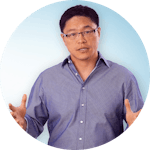 Kurser
Kurser